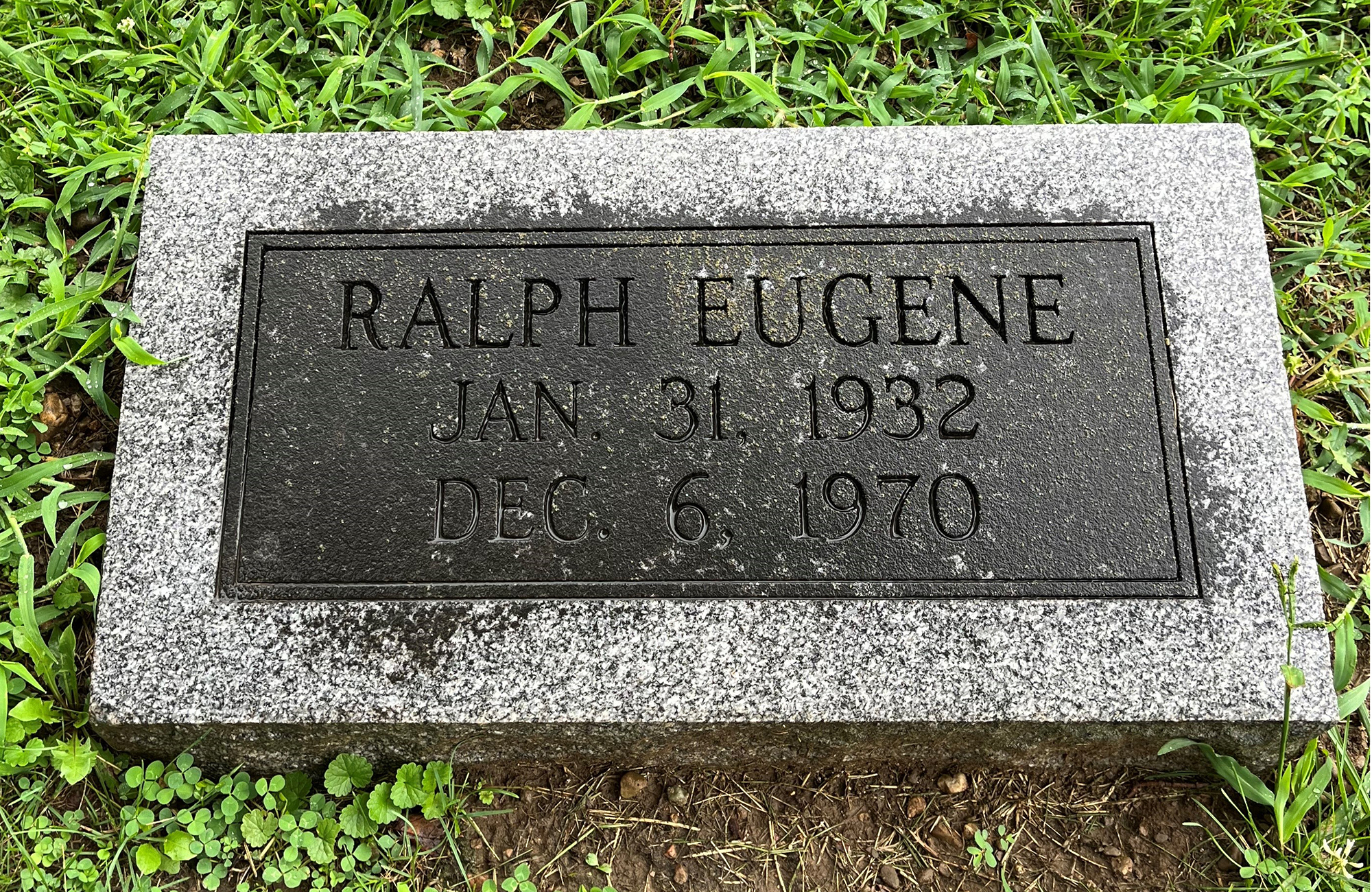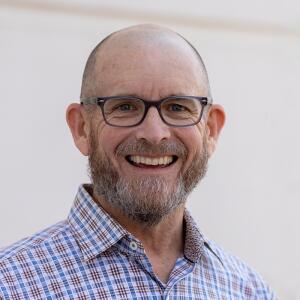Mountains of Grief

On December 7, 1970, my mom woke my brother and me up to tell us that our dad had been hit by a car and killed the night before. They had been out to dinner, and, when my dad stepped out of the car and into the street, a drunk driver hit him. I was 7 years old when this happened.
My dad was a small-town lawyer in Indiana. He worked a lot. When he wasn’t working, he might be found fishing in a jon boat on a little farm pond we had. I don’t really remember much about him other than the stories I have been told. I do remember the day I found out he died.
There is no way to really prepare for tragedy like that. It kind of feels like getting punched in the gut. One day everything is fine, and the next you can’t make sense of the world. It doesn’t get any easier as we get older. When unexpected tragedies come, it can feel like being on a ship drifting aimlessly on the ocean. It’s too deep to anchor, and you have lost power.
The people of Western North Carolina were punched in the gut by Helene last month. Nobody could have guessed how devastating the flooding would be. This wasn’t a 100-year flood. This was described as a 1000-year flood. Areas previously thought to be safe proved to be deadly. The images that we now see on-line and on television could not have been imagined.
When I got punched in the gut as a 7-year old, I didn’t really have the skills to cope with the trauma. I dealt with it by getting on with life. I tried not to think about it too much. I don’t think I really let myself grieve the loss of my dad. Looking back, I can see that this did not result in the healthiest behaviors. My grief was just below the surface screaming to come out, but I could not allow that to happen. It might hurt too much. So, the grief came out sideways. When I was 8 years old, I started smoking with some of my friends. We would steal our parents’ cigarettes and smoke in the cornfield. My friend Craig would get Kool menthols from his mom. Those were our favorites. We tried to smoke another friend’s dad’s filterless Camels, but that was just too strong for our 8-year old lungs to handle. When I wasn’t smoking or taking beer from our outside refrigerator, I might be vandalizing our neighborhood. This continued for several years. Eventually, I grew tired of getting caught and punished and I set out on a straighter and narrower path.
It took me more than forty years to come to terms with my dad’s death. I started by visiting his gravesite in Shelbyville, Indiana. It was the first time I had been there. I apologized for not visiting sooner and thanked him for being my dad for the short time that he was in my life. I told him about my life and my children (his grandchildren) and how I had become a lawyer just like him. I shared that I loved fishing as much as he had. I even left a fishing lure on his gravesite. It was one of the most therapeutic things I have ever done. And while it evoked deep feelings of sadness, I survived. The sadness was always there just beneath the surface.
I later talked with a therapist about the grief of my loss. It felt good to talk to another person about it. At my therapist’s suggestion, I wrote a lamentation about my dad and his untimely death. That was not easy. Reading it out loud took a minute. However, like the graveside visit, it felt good to speak the words. It also felt like a good way to remember and honor his memory.
Making room for grief after a hurricane or other natural disaster can be difficult. In the initial aftermath of a storm, the primary concern is food, water, and shelter. It can be hard to shift from survival mode to self-care. Taking time to grieve can be even more difficult for lawyers, because they may be busy helping others who have been affected by the storm. Lawyers are very good at compartmentalizing and avoiding difficult emotions. Eventually, though, grief will find its way to the surface. At some point, you must face your own grief. As pointed out in an article from the North Carolina Lawyers Assistance Program, there is no way out but through. But through looks different for everyone. Some people walk through grief by seeking connection with friends and family. Others walk through by engaging in creative projects that bring healing. For some, the grief process requires professional grief counseling. If you are one of those people, NCLAP can help you locate a grief counselor.
The Substance Abuse and Mental Health Services Administration suggests that, if you or someone you know is experiencing the following symptoms, you may be suffering from emotional distress that requires professional help:
- Crying spells or bursts of anger
- Difficulty eating
- Losing interest in daily activities
- Increasing physical distress symptoms such as headaches or stomach pains
- Fatigue
- Feeling guilty, helpless, or hopeless
- Avoiding family and friends
What about those who were not directly impacted by Helene but feel deep sadness for those who were? I have talked to so many people who feel overwhelmed by the enormity of the destruction and suffering. We might not have been punched but we cringed when we saw how devastating the blow was. One of the ways that we can walk out this kind of grief is to do something to help our neighbors in our mountain communities. Serving others is one the most effective ways to improve our own well-being. There are countless opportunities to help.
As lawyers, we are accustomed to treating fellow lawyers as adversaries when representing clients. Hurricane Helene calls on us to put on a different hat. The devastation wrought by the storm offers us an opportunity to come together as one. It calls on us to drop the divisiveness and labels and realize that, when one of us hurts, we all hurt. In a short time, I have seen the goodness of so many lawyers offering assistance.
If you know another lawyer in an area affected by the storm, pick up the phone and check in to see how they are doing. You don’t have to fix it for them. You just need to make space to listen. If you would like to help financially, there are numerous opportunities. Legal Aid of North Carolina is in desperate need of assistance. You can also donate to the North Carolina Disaster Relief Fund, the American Red Cross, the Salvation Army, the United Way of North Carolina, food banks throughout the state, and numerous other organizations. You can also volunteer your time and talents to these organizations.
There is no one way to grieve or to help others make it through this tragedy. And there is no artificial timetable for grieving or the recovery effort. It is not going to be easy. Loss and tragedy never are. However, my experience of loss like my father’s death and other valleys in my own life is that I come out stronger on the other side. Author and Franciscan priest Richard Rohr calls it falling upward. And it never hurts to have someone behind you giving you a little push up the hill.
About the Author

Will Graebe
Will Graebe came to Lawyers Mutual in 1998 as claims counsel. In 2009, Will became the Vice President of the Claims Department and served in that role until 2019. After a two-year sabbatical, Will returned to Lawyers Mutual as claims counsel and relationship manager. In his role as claims counsel, Will focuses primarily on claims related to estates and trusts, business transactions and real estate matters. Will received his J.D. from Wake Forest University School of Law and his undergraduate degree from Stetson University. Prior to joining Lawyers Mutual, will worked in private practice with the law firm of Pinna, Johnston & Burwell.
Read More by Will >
